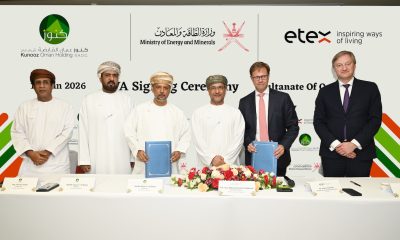Energy
Prioritising development over surpluses
Kuwait’s budgetary surplus for the year 2012-2013 amounted to 25 per cent of its GDP. It is high time that the country used its sizable surpluses to address development priorities.

Kuwait’s budgetary surplus for the year 2012-2013 amounted to 25 per cent of its GDP. It is high time that the country used its sizable surpluses to address development priorities.
Recording exuberant budgetary surpluses continue to be an ongoing phenomenon in Kuwait, as confirmed by the latest published data. For 14 years in a row, budgets for the fiscal year ending March have ended with sharp surpluses. For 2012-13, the surplus recorded $45.4bn, though below the $47bn in 2011-12.
However, the latest surplus is peculiar, as the budget was prepared with an assumed deficit of $26 billion. The logic for assuming a shortage is simple, namely to deny the repeated demands by lawmakers for increasing the salaries and benefits of public sector employees. Needless to say, the surplus is sizable by virtue of comprising about 25 per cent the country’s GDP. Certainly, this is extraordinary by global benchmarks where deficits rather than surpluses are the norm.
The budget surplus was attained partly from higher revenues and lower than projected spending. Total spending stood at $69bn in 2012-13, down by nine per cent from the originally planned estimates. The budget for 2011-12 was prepared with an assumed oil price of $65 a barrel, considerably below prevailing market rates. By one account, the average price for Kuwait’s oil exports was pegged at $106 a barrel during the previous fiscal year. Sure, the assumed figure for 2012-13 was higher than the $60 a barrel assumed for 2011-12 but still considerably below prevailing market rates.
The petroleum sector accounts for around 90 per cent of treasury income (93 per cent in 2012-13). Still, oil resources compromise more than 80 per cent of exports and 40 per cent of GDP. These facts expose the need for diversifying away from oil to avoid placing the economy at the mercy of the external environment. Certainly, actual spending was lower than the planned figure, but higher compared to the year before. In fact, governmental spending increased by a notable 14 per cent in a single year partly to cover for stronger allocation of wages for Kuwaiti nationals working in the public sector.
The expansion is partially credited to the stronger execution of capital spending from 64 per cent to 69 per cent in 2012-13. The inability to make full use of planned capital spending is reportedly related to capacity challenges such as having the right contractors and lengthy administrative processes. But there were salary and allowance increases for locals working in the public sector. In reality, current spending augmented by a substantial 18 per cent.
Notably, current spending comprised 91 per cent of total spending during the fiscal year.
This comes as no surprise as 90 per cent of locals work in government departments and state enterprises, and the authorities tend to find ways to appease them when and if necessary. This suggests that relatively a small per cent of government spending ends up as capital spending for development projects. Undoubtedly, a country needs to allocate a sizable amount of funds on infrastructure.
Amazingly, the accumulated surpluses of the 14 years stand at $254bn, astonishing by all means. Accordingly, the ranking of sovereign wealth funds (SWF) held by Kuwait Investment Authority (KIA) recently improved from seventh to being the sixth largest in the world. The Sovereign Wealth Institute puts the worth of KIA’s holdings at $386bn. Nonetheless, the challenge for the authorities is investing sufficiently on projects such as a metro.
-

 News2 months ago
News2 months agoAI Security Conference 2025 Hosted by Securado Highlights the Changing Cybersecurity Landscape
-

 Insurance2 months ago
Insurance2 months agoSupporting Community Wellness: Liva Insurance Sponsors Muscat Marathon 2026 with Free Health Checkups
-

 Interviews1 month ago
Interviews1 month agoEXCLUSIVE INTERVIEW: TLS Rebranding Marks Strategic Leap Toward Innovation, Sustainability & Growth
-

 Insurance1 month ago
Insurance1 month agoLiva Insurance Supports Community Wellness Through “Experience Oman – Muscat Marathon 2026”
-

 Investment3 weeks ago
Investment3 weeks agoLalan Inaugurates Its First Overseas Manufacturing Facility, Marking Sri Lanka’s First Investment in SOHAR Freezone
-

 Banking & Finance1 month ago
Banking & Finance1 month agoA New Platform for SME Growth: Oman Arab Bank Unveils Tumouhi
-

 Construction4 weeks ago
Construction4 weeks agoInternational Heavy Equipment hosts Open Day at its Refurbished Facility in Sohar Industrial Area
-

 News3 weeks ago
News3 weeks agoKunooz Oman Holding Partners with Belgian company Etex for Local Gypsum-Based Business Development






























You must be logged in to post a comment Login